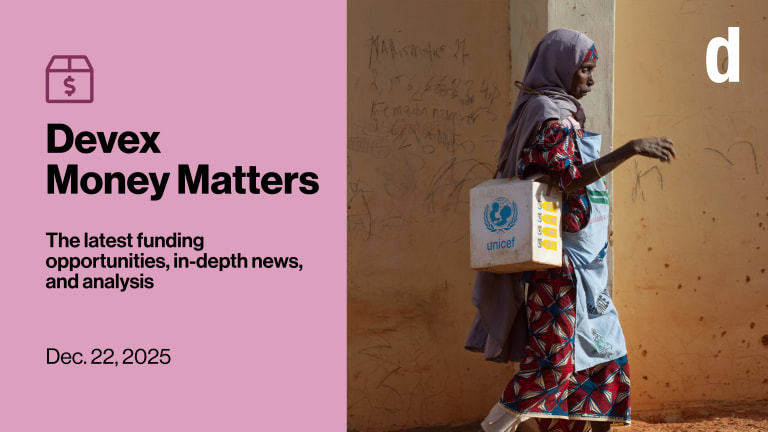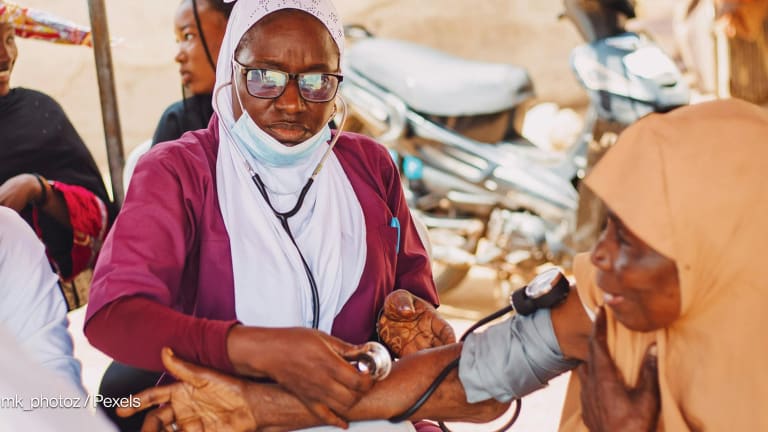DURBAN, South Africa — The Gates Foundation is at the World Economic Forum on Africa to lend its voice to the idea of reducing inequalities and to try to get African governments to invest more in research and development, Ayo Ajayi, the director of the foundation’s Africa team, told Devex.
“We are trying to increase African governments’ participation in research for their own development,” he said. “If there’s an agenda, the agenda is to try to get governments to be more committed to saying we can do this, we need to do this. Africa can benefit in the next few decades by leapfrogging, by using innovation and technology and we need to do that by funding it as much as possible ourselves.”
It is one example of the foundation’s strategy to both publicly and privately encourage governments to make development policies more pro-poor and address inequity.
“The rich can always take care of themselves. It is the poor who need some safety net, some assistance, to make sure that they can lift themselves a lot more,” Ajayi said. “Ultimately though the important thing is to strengthen individual capacities to lift themselves out of poverty.”
This focus on tackling inequality is at the heart of the foundation’s work and it guides its three big priorities on the continent: agriculture, health and financial services.
The foundation focuses on agriculture because in most parts of Africa people rely on agriculture and it can be used to lift people out of poverty.
See more stories from the World Economic Forum on Africa:
► Tackling the problems of fragile states in Africa
► South African environment minister shares lessons on how to create blue economies
► Boosting agriculture could mitigate African famine threat in a warming world
“China has done it, many parts of the world have done it, and we believe that’s a way to reach a lot of people. We can increase their productivity, get them access to markets, make sure they have the right technologies for seeds, for planting, for all their processes,” he said.
In health, the foundation focuses on maternal and child health driven by the belief that no child should die from diseases that have a cure or can be prevented and that no woman should die because she is pregnant or having a baby. It also focuses on communicable diseases such as tuberculosis and HIV, which are the two main areas of assistance to the government of South Africa.
“Our efforts are designed either to strengthen the primary health care systems in countries or to provide assistance to strengthen their HIV, TB treatment [and] prevention programs and also to look at ways of improving routine immunization,” Ajayi said.
Building a robust system is the focus so that individual countries, and the continent more broadly, can better respond to emergencies such as epidemics, be it Ebola or Meningitis.
The other issue the foundation focuses on in Africa is what they call financial services for the poor.
“This is getting financial inclusion for even the most rural remote people in Africa because we know that could significantly increase the GDP of a country,” Ajayi said
To tackle those challenges, the foundation is working with governments, the private sector, other foundations and individuals — and events like WEF allow opportunities to build some of those relationships.
For everything you need to know about the World Economic Forum on Africa, follow our coverage this week and join the conversation on Africa's future. Follow @devex and tag #WEFAfrica2017.
Search for articles
Most Read
- 1
- 2
- 3
- 4
- 5








